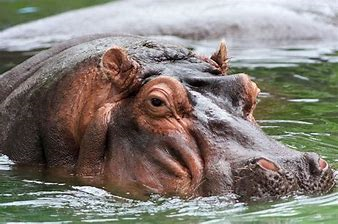Article-Detail

Animal Research Relates
Psychologists study animal behavior, how they interact with each other, stress, and their environment to explain why they behave the way they do. This research also sheds light on human behavior and is reliable because animals don't worry about what the researcher is thinking or try to get the 'right' answer, they just be. Animals just carry on with their lives without a care about what observers are thinking, the social impact of their behavior, or what someone may think or write about them. Humans are so varied in their behavior and our behavior changes as we move from one social group to another. In short, the same person will act differently depending on who they’re with. For example, you will act one way at a ballgame and another at church. One way with your bff and another with your grandmother… Usually. Responses to surveys and experiments are similarly unreliable which is why there are practices such as double blind experiments to guard against bias.
Animals, particularly mammals, are built very similarly to humans with the exception of the brain. Animals don’t have the same capacity to think the way humans do. An animal does not think about the thoughts of other animals, nor does it contemplate its own thoughts. It reminds me of a shark week episode where a great white shark was found hunting for seals who were themselves hunting for food just before dawn to avoid the sharks off the coast of South Africa. One seal found itself in the crosshairs of a shark and despite its best effort, was wounded. The blood in the water attracted a second shark. The first shark had the seal in its mouth but because it was at a odd angle, the shark could not swallow it. Instead, the shark had to release it and take another angle. Once it did release the seal, the second shark swooped in and ate it. No regard for all the effort the first shark put in to get this kill, no regard for how the first shark would think or feel and, surprisingly, no hard feelings from the first shark. The first shark just moved on to find more prey. Imagine how that would play out in the human world, all hell would break loose. In the animal world, you just move on. One reason for this is that there is no thought about thoughts or feelings in the animal world.
I am interested in the hippopotamus. The name given by the ancient Greeks, translates to “river horse”. Although its appearance is more similar to a pig, its ancestors are actually whales and dolphins. The hippopotamus one of the more aggressive animals on the earth. Its great courage has been admired for centuries, most notably by the Zulu warriors, the Impi. To encourage their chief, the Impi would chant, Een-gonyama Gonyama! Invooboo! Yah-bo! Yah-bo! Invooboo, which means "He is a lion. Yes, he is better than a lion, He is a hippopotamus! They live, mate and fight in the water where they spend most of their time. They leave the river at dusk and spend hours grazing at night. Hippos have been known to displace crocodiles in order to lay their claim on a portion of a river for their herd. A bull will lead a herd of 10 and up to 100 females and control around 300 yards of a given river. The hippo also has been the subject of various African folktales, I’ve heard two. 1. When the creator assigned each animal its place in nature, the hippos wanted to live in the water but were refused out of fear that they might eat all the fish. After begging and pleading, the hippos were finally allowed to live in the water on the conditions that they would eat grass instead of fish and would fling their dung so it could be inspected for fish bones. 2. The hippo originally had long, beautiful hair, but was set on fire by a jealous hare and had to jump into a nearby river. The hippo lost most of his hair and was too embarrassed to leave the water.
I can hear you all now, “This is all very interesting but what does it all have to do with leadership?” Although they do live in pods of 10 to 100, they are not naturally social animals. Hippos live a mostly unassuming life with half of its head out of the water, flopping its ears until they perceive a threat. When a threat is nearby, almost without warning, they can get very aggressive. To an outsider, even to other hippos in the pod, it seems erratic because at times only one hippo will perceive the threat. What you get is very dangerous behavior. In the workplace, when people are under stress, don’t feel secure in their work or their jobs, you get similar responses. Now people don’t act like hippos but the conduct is equally anti-social and unproductive. Psychologists can recreate stress and security to measure the reactions of the animals, they also do this with humans. What researchers have found is that when you reduce stress among hippos and humans in groups, you see them living their lives in more harmony. The opposite is true when you introduce stress.
As a leader, this research should not surprise you. In fact, it should seem like common sense. The problem is that inspite of how obvious this information is, leaders are still the most common source of stress for their work force. The results are catastrophic, office incivility, sick days, workman’s comp claims, and all of the medical costs that come with it. That doesn’t include the time complaining to other employees, conspiring against the organization or other nonproductive behaviors. Leadership in a given organization holds the responsibility for its people, managing conflict, stress and providing security. Using this information to diagnose problems won’t give you specific descriptions of what people are going through but it will help you understand when things are not right. Your relationships with your people will open the doors for you to have honest conversations with people. Pay attention to their inner hippo, reduce undue stress, provide security, and respond when they are raging and your people will get behind you and you will SOAR!
William A. Brown
May 26, 2019




